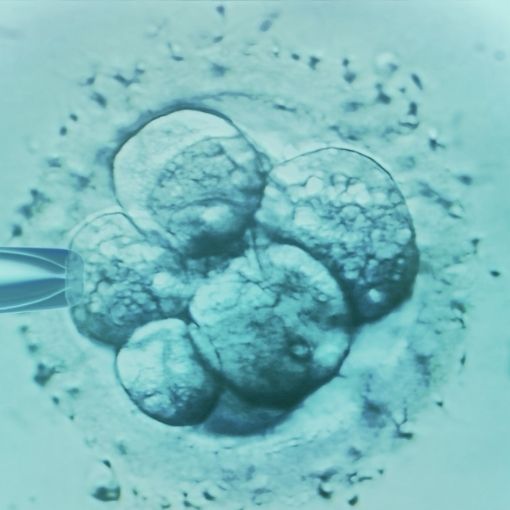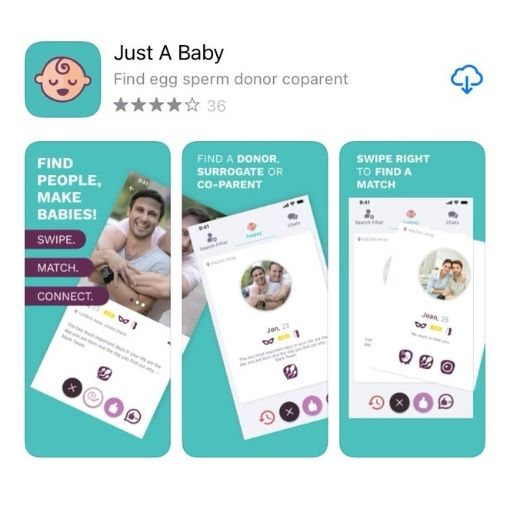Are you considering starting IVF? When you started trying for a baby, IVF might have been something you were aware of that other people did but never believed you might need yourself.
But, if you have struggled to conceive naturally for over a year, your doctor might advise that fertility treatments like IVF will be your best chance of having a family. This news can be hugely troubling, but you are certainly not alone. Did you know 1 in 7 couples in the UK struggle with infertility? And it is estimated that around 53,000 women are treated at UK IVF clinics annually.
Starting In Vitro Fertilization (IVF) can be an overwhelming and emotional experience. But, of course, when it all goes to plan, all the blood, sweat and tears are worth it if you get that positive pregnancy test that leads to you getting to meet your long-awaited baby at the end of the process.
On the flip side, not knowing what to expect and worrying if it will work can be hugely stressful. Not to mention the costs involved.
Before starting IVF, take time to arm yourself with the right information and support to make the best decisions for you and your family. We’ve put together this article to talk you through everything you need to know about starting an IVF journey. From the initial consultation to the embryo transfer.
What exactly is IVF?
Ok, so in a nutshell: In vitro fertilisation (IVF) is a fertility treatment that involves combining eggs and sperm outside of the body in a lab setting.
The resulting embryos are then transferred to the uterus, where they can hopefully implant and grow into a healthy pregnancy. Don’t worry we cover this in a little more detail below!
IVF is often recommended for couples who have been trying to conceive for a year or more without success. Or for those with specific fertility issues such as blocked fallopian tubes or low sperm count. It’s also an option for single people or same-sex couples who want to start a family.
Preparing for IVF
Before starting IVF, you’ll need to undergo tests. Lots of them and a range of evaluations to determine if you’re a good candidate for the treatment. Your doctor will likely perform a physical exam, take blood samples, and schedule ultrasounds to evaluate your ovaries and uterus.
You may also be required to undergo a hysteroscopy. Which is a procedure that involves inserting a thin, lighted instrument through the vagina and into the uterus to look for any issues that could affect implantation.
Depending on your age and medical history, your doctor may recommend that you take fertility medications to stimulate your ovaries and increase the number of eggs available for collection. These medications can include injections, pills, or a combination of both.
The IVF process
Once you’ve jumped through the hoops by taking the necessary tests and evaluations, the IVF process can begin. Here’s a quick list of what you can expect. Then we will talk about the key stages of the IVF process individually:
- Ovarian stimulation: You’ll take fertility medications to stimulate your ovaries to encourage the production of multiple eggs.
- Egg retrieval: After about two weeks of ovarian stimulation, your doctor will retrieve the eggs from your ovaries using a thin needle guided by ultrasound. This procedure is done under light sedation or anaesthesia.
- Fertilisation: The eggs are combined with sperm in a laboratory dish and monitored for a few days to allow for fertilisation and embryo development.
- Embryo transfer: The embryos are transferred to the uterus via a thin catheter inserted through the cervix. This is typically done two to five days after the egg retrieval.
- Pregnancy test: About two weeks after the embryo transfer, you’ll take a pregnancy test to determine if the IVF process worked.
Ahead of your first IVF cycle, your doctors will check the ovarian reserve to determine how well you will respond to the drugs. Then, when the time is right, your doctor will stimulate your ovaries to produce multiple eggs for collection. After that, you’ll be called back for checks every few days. This is to check if they are growing as planned using a combination of blood tests and ultrasounds. The whole process typically takes around 14 days.
Then, when your eggs are at the right stage of growth, you will be given a late-night injection to help with the final maturation of the eggs. Your egg collection will be scheduled around 36 hours later.
The egg collection
Egg collection is considered a day-case, minor surgical procedure. It’s usually carried out when you’re under sedation. Your doctor will use an ultrasound probe connected to a fine needle to puncture the follicles and collect the eggs. The procedure takes just a short 10 to 20 minutes.
Once complete, you will be given hormones to prepare the uterus lining for the introduction of the fertilised embryo.
Lab Fertilisation
After egg retrieval, your eggs will be analysed by an embryologist in a lab. They will then be combined with sperm provided by your partner or a donor.
Once combined, doctors can determine whether fertilisation has been successful after around 18 hours. This is due to the presence of a nucleus from the egg and the sperm, which can be seen under a microscope.
The embryos are monitored for around three to six days after fertilisation to make sure they are developing as they should. Preimplantation genetic screening may be carried out on the embryos now.
Embryo Transfer
At this stage, one embryo will be transferred into the uterus. Your embryologist will pick it up in a catheter which will then be passed into the womb. Then the embryo will, fingers crossed, implant. Any additional frozen embryos collected can be frozen and used if any future treatment is needed. Frozen eggs can be stored whether the IVF cycle is successful or not.
In preparation for your embryo transfer day, your fertility doctor will assess the quality of embryos and decide which to transfer. It’s standard practice only to transfer one embryo. But this can vary depending on various factors, including age and the number of previous IVF cycles completed.
After the transfer, it’s time for that painstaking wait to see if your IVF cycle was successful. You will usually be able to take a pregnancy test 9-14 days after the transfer.
How much does IVF cost in the UK?
If you meet set criteria, you could be eligible for up to three rounds of IVF in the UK funded by the NHS. For those that don’t meet the requirements, a single round of IVF can cost around £5000. There may also be additional costs to pay, such as medications, consultations and testing, so make sure you check with your clinic upfront to understand the true treatment cost.
How to choose a clinic when starting IVF
If you are going private, you can choose which fertility clinic to attend for your IVF treatment. You’ll need to consider what is important to you when choosing. We suggest looking at factors like cost, success rates, policies on multiple births and the support they offer throughout your IVF journey. The clinic’s location might also be important if you want as little disruption as possible.
What is important to remember is we all have different priorities. Even the most highly rated clinics are not right for everyone, so we recommend speaking to a few and doing as much research as possible before committing. Make sure you work with a team that you feel comfortable with and meet your requirements.
What if IVF doesn’t work for me?
We know from experience it can be truely heartbreaking when a round of IVF doesn’t result in pregnancy. So even if you tried not to get your hopes up, it’s natural to feel disappointed and sad.
When you feel ready, make an appointment with your fertility doctor to discuss your options from here and the chances of any future fertility treatment being successful. It’s possible that other treatments might be available, such as using a donor embryo or trying a slightly different process. But, of course, as with any fertility treatment, success is not guaranteed.
When it comes down to it, the decision on how to proceed after a failed round of IVF is entirely yours and your partners. You might find it helpful to speak to an impartial professional or counsellor to discuss your options.
Conclusion
Deciding to start IVF treatment is a big decision and one you might have thought you would never have to make when you first started dreaming of having children. We hope the above guide has helped you understand the process better. Don’t forget that during your fertility journey, whether you have IVF or not; it’s important to have support around you.
Sometimes you might find it helpful to talk to other women who are in the same situation as you rather than your family or partner. That’s why we created the Hoopsy fertility community, so women at all stages of their fertility and trying to conceive journey can discuss and share information about their experiences with a group of women who really understand like no one else can.
So, if you are going through IVF or thinking about fertility treatment, come and join the Hoopsy fertility community. We can’t wait to meet you.





Thank you for this post. Please could you maybe do one that goes into more detail about fresh embryo transfers and frozen embryo transfers? Thank you.
Great idea Jessica we will work on it for you 🙂
Hi Jessica, Thanks for the suggestion! We have just posted a new blog covering the subject of frozen vs fresh embryo transfers. You can view it here: http://hoopsy.com/frozen-vs-fresh-embryo-transfer